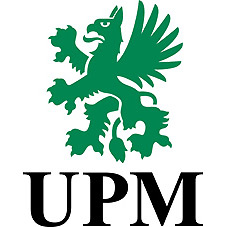
UPM informed APRIL earlier this month that it would be terminating its pulp purchase contract, and will instead source pulp for its Changshu fine paper mill in China from the Fray Bentos pulp mill in Uruguay. The new pulp-sourcing arrangement has been made possible by an agreement concerning the transfer of the Fray Bentos mill to UPM’s ownership.
Most of the pulp delivered to Changshu had been sourced from the APRIL-operated PT Riau Andalan Pulp & Paper (RAPP) pulp mill in the Riau province of Sumatra, one of the largest pulp mills in the world.
Environmental groups have been quick to praise the move by UPM, with Greenpeace activists staging a protest last week at one of APRIL’s sites in Sumatra by chaining themselves to several pieces of land-clearing equipment. The organisation also released a report, including aerial surveillance images, that claimed APRIL is destroying areas of rainforest and draining forest peatland on Sumatra’s Kampar Peninsula.
Greenpeace also claimed that APRIL is clearing forest on peat which is more than 3 metres deep, which is illegal under Indonesian law.
“This is a very positive move by UPM to help protect Indonesia’s rainforests and carbon rich peatlands, the destruction of which is driving climate change, mass species extinction, and causing poverty in forest dependent communities,” said Greenpeace Southeast Asia rainforest campaigner Bustar Maitar.
The news also comes just a week after APP was taken to task during a live ProPrint webcast for lagging behind APRIL with regards to FSC certification.
UPM was quick to reinforce its environmental credentials, saying it has worked with APRIL to develop sustainable practices since 2002, and that it had regularly carried out supplier audits in Indonesia, with the latest audit conducted last month.
The UPM contract is estimated to be worth US$55 million ($A59m) annually for APRIL, with the Changshu mill importing over 105,000 tonnes of pulp from Indonesia last year.
APP and APRIL are believed to account for over 73% of Indonesia’s total pulp capacity.
Comment below to have your say on this story.
If you have a news story or tip-off, get in touch at editorial@sprinter.com.au.
Sign up to the Sprinter newsletter


